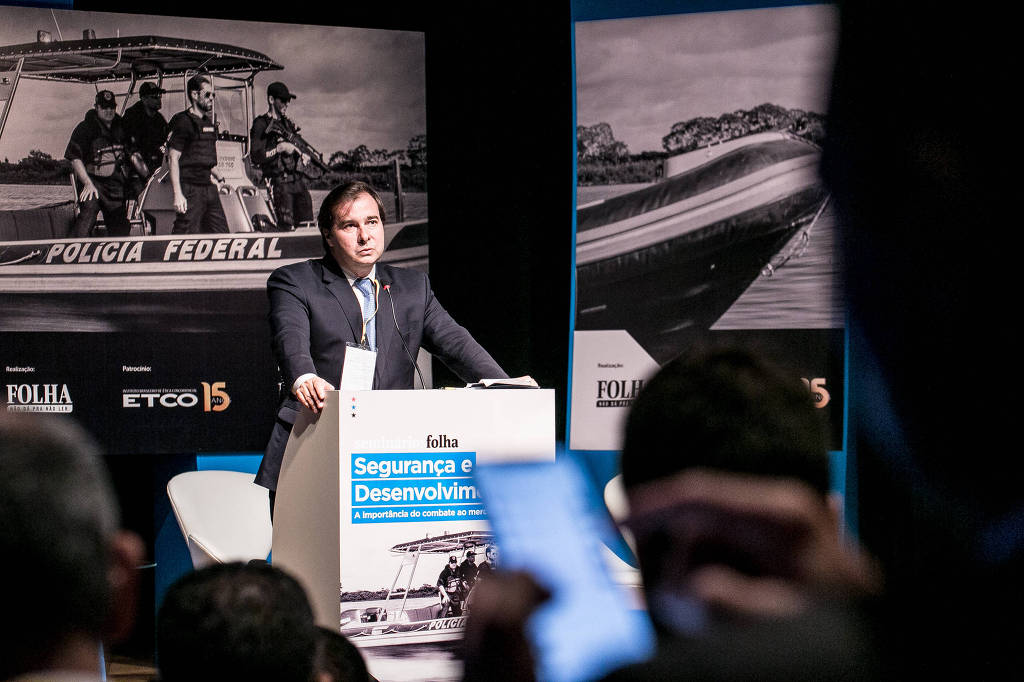Mayor opens Security and Development seminar: the importance
combating the illegal market

The decrease in the presence of the State and the creation of legally safe environments for investments were pointed out by Rodrigo Maia (DEM-RJ), president of the Chamber of Deputies, as measures for the country to move forward in several areas, including combating violence and smuggling. at borders.
According to Maia, it is necessary to discuss and reformulate the current legislation to change the scenario of a bureaucratic model that prevents the country's growth. “We are experiencing a great anomaly today regarding the laws, the Brazilian State and its enforcement. We should have a clear and agreed objective for these issues to be treated in a more transparent and more serious manner ”, he said.
The deputy's speech opened the seminar on Security and Development: the importance of combating the illegal market, carried out by Folha, sponsored by ETCO, this Tuesday morning (20), in Brasília.
The parliamentarian said that structural reforms are needed in all political spheres. "If we do not have the courage to face this system, year after year, we will have the advance of smuggling, counterfeiting and violence."
According to him, “some have the courage to face controversial issues and with rejection in society. Others prefer that time gives a solution to these problems ”. At various times, the president of the Chamber of Deputies stated that it was necessary to rethink the state's role in society.
For Maia, the public machine hinders and removes the interest of investors. “Often, in the middle of an investment process, the government tries to change rules to increase its collection. We need to guarantee this security so that the private sector can invest more in our country, ”he said.
REGULATORY AGENCIES
Maia also criticized the performance of Brazilian regulatory agencies. According to him, the appointment by political office undermines the efficiency of the entities. “There may be very good people there, but that is luck. There is no clear rule for having at the agency people who are really concerned with the topic they are dealing with. The nomination rules must be stricter so that we have people representing the Brazilian state, and not the government. ”
LACK OF MANAGEMENT AND BUDGET
The deputy said that the low budget harms the fight against organized crime and violence. As an example, he cited the two border control programs developed by the federal government: the dry areas, commanded by the Army, and the maritime borders, under the responsibility of the Navy, and which are delayed by the lack of management and investments.
“It is already known where the problem is, which border has the most problems, where the criminal factions are, how they command the crime from inside the prisons. But we are all immobilized, ”he said.
FINANCIAL CONTROLS
The modernization of financial control systems was mentioned as part of the solutions to deficits in several areas of Brazilian inspection.
"The inclusion of digital platforms will curb various illicit practices, from tax evasion to movements that finance organized crime," said Maia.
The mayor said that it is also necessary to pay attention to public spaces to prevent the spread of criminal practices.
"There is no degraded public space that illegality does not command and benefits from," he said.
Source: Folha de São Paulo (20/02/2018)











